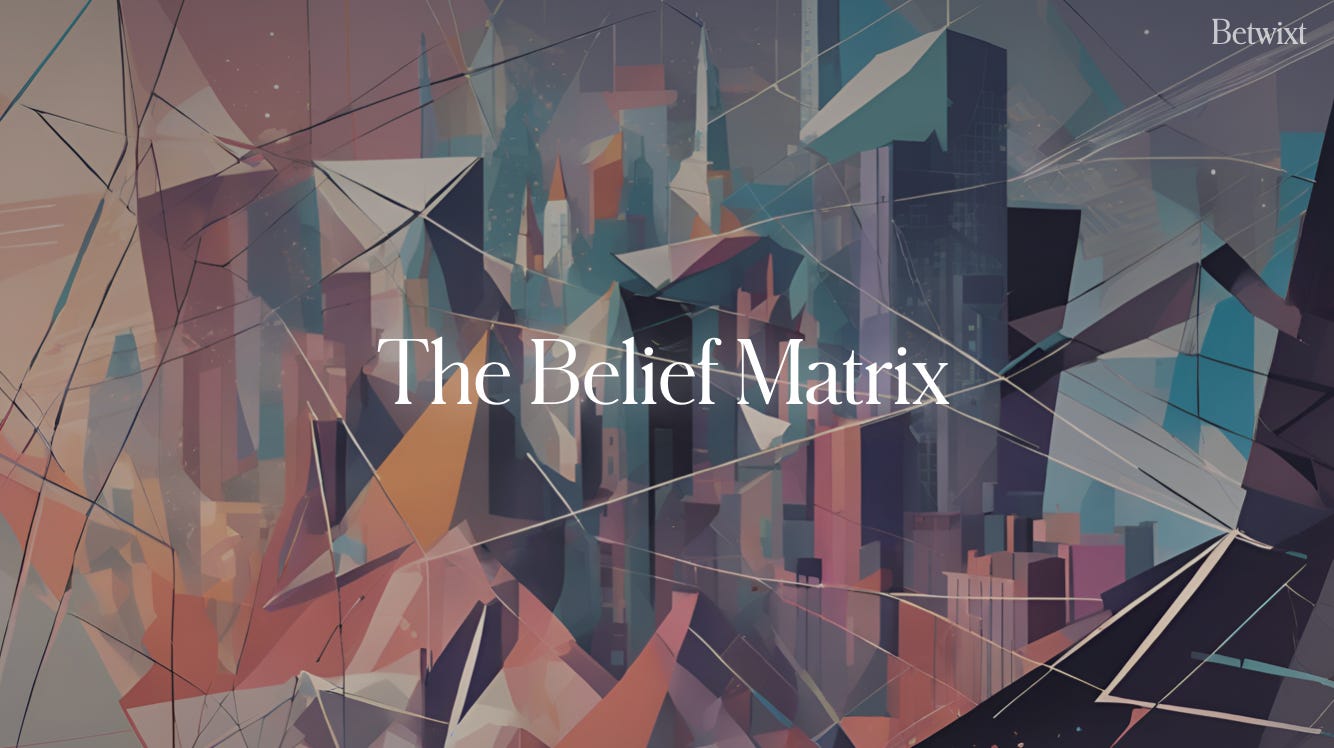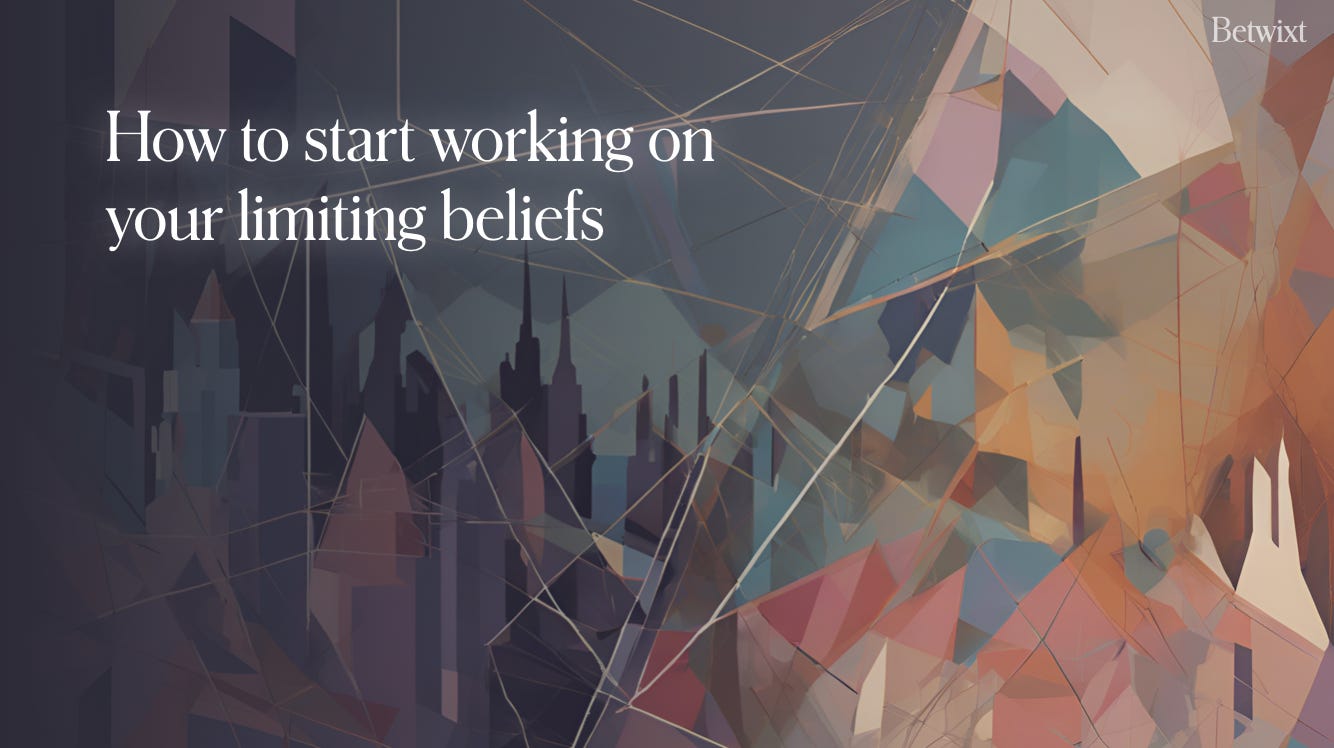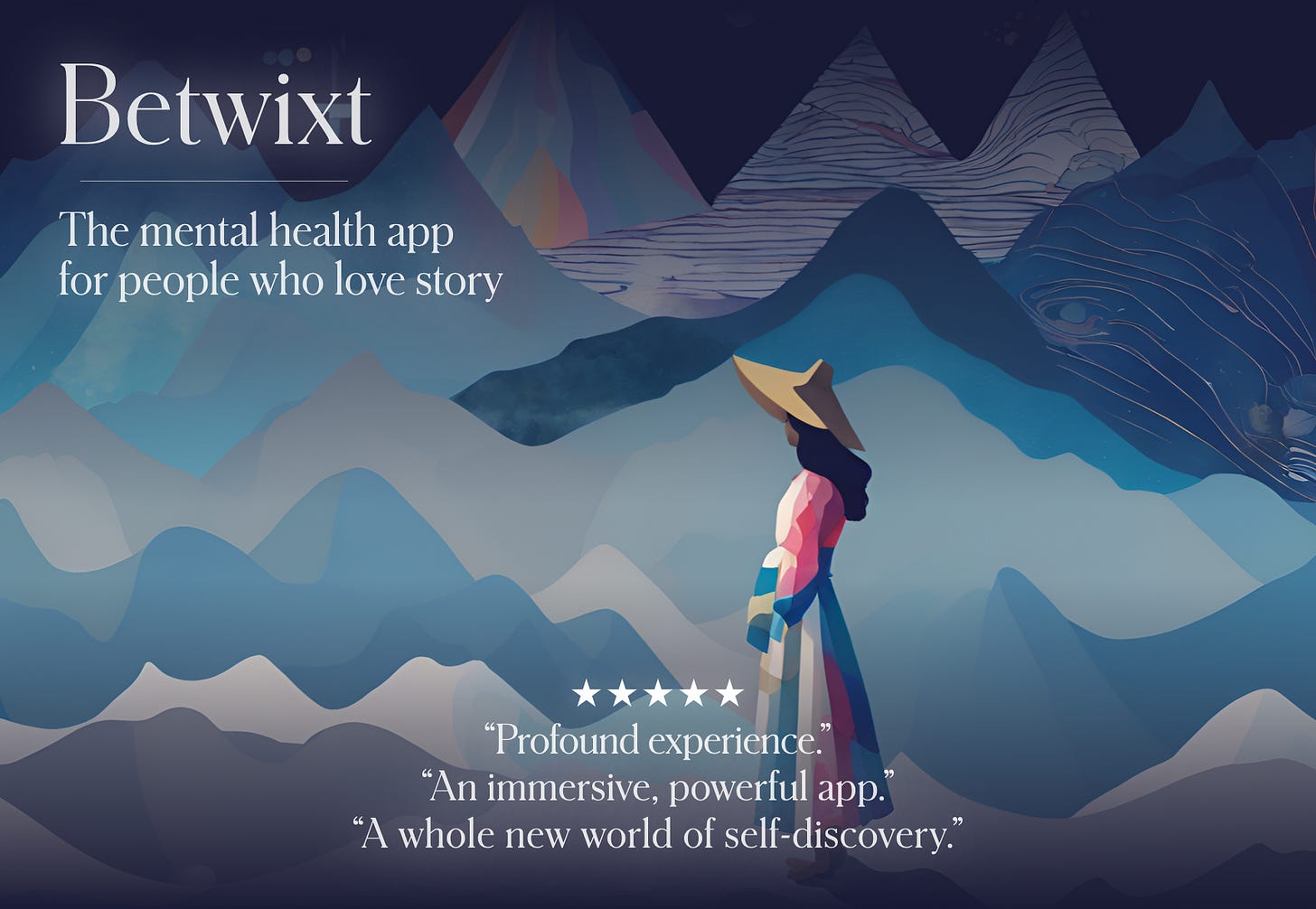Why you'll never achieve your way out of the self-doubt trap (this is good news)
And how to see past the monsters of your mind
You can listen to this post on TikTok, YouTube or Instagram.
***
This is how and why your very worst fears can sometimes come true, and what you need to do to take control of your self-sabotaging ways.
Back in 2018, I published my first book (this isn't a sales pitch. I promise it's relevant), and in that book, every chapter begins with a little vignette from my life – in other words, a small passage of creative writing. At the beginning of the process, when people asked me how the book writing was going, I kept saying, "Yeah, it's going well, I think. At least, the sciency, logical parts are, anyway. I'm not sure about the story stuff because I'm no good at creative writing."
Now, at some point, after saying those exact words multiple times, I finally HEARD myself. I was literally writing a book about limiting beliefs, while simultaneously not just living in the thrall of this particular self-doubt, but also broadcasting it to anyone who asked. Excellent.
However, funny as it was, I didn't see this as a failure, not even at the time, because that's how belief works – nothing that we believe is necessarily true, but every belief we hold will absolutely feel true, so much so that we will not question it or even notice it. As far as we're concerned, it's just how things are.
Until it's not… But I'll come back to this in just a moment.
The belief matrix
There’s a complex matrix of beliefs in your unconscious mind, and it’s as unique as your fingerprint. It grows as you accumulate experiences, especially while you’re young. Parts of it will be positive (such as “I’m beautiful/lucky/good at maths” or “My parents are happy”) and other parts of this matrix, of course, will be negative (such as “I’m untalented/stupid/bad with numbers,” “Men/women are dangerous” or “Mice/spiders are life-threatening”).
As a whole, this system of beliefs acts as a kind of filter through which you view the world. It influences your interpretation of everything you come in contact with, it guides you in your decision-making – from your outfit selection to choice of life partner. And some beliefs can become so bound to your sense of identity that they begin to limit the life you live and the person you become.
The limiting beliefs that tend to do the most damage are the ones that have been around for a long time. This isn't because they are ingrained, necessarily. It has more to do with the fact that we arrived at these decisions before our brains were capable of understanding any real nuance.
Exaggerated conclusions are easy to form when we’re young. We think differently when we are children; the world is binary. Things are either good or bad; we win or we lose; we’re loved or we’re unloveable. This means that negative experiences in our formative years can lead to very, very negative beliefs.
Significant Emotional Events (SEEs)
An event that causes someone to reassess their beliefs, values or worldview is known as a Significant Emotional Event (or SEE), but if happening early in life, an event doesn’t need to be any more dramatic than tripping over in the school nativity play, or getting told off for drawing on the walls (because those things are significant to a child). So we don't need to have experienced big, objectively traumatic things as children to wind up with limiting beliefs. We all have them because literally anything we happen to interpret negatively can lead to a limiting belief.
And when something like this happens, the child has two options. They could simply accept that message, either by submitting entirely to the negative perspective, or by healthily integrating failure into their model of the world. Alternatively, they can reject it by deciding that no, they'll show the world they're not a failure or stupid or bad or whatever the message was.
And off they go on a mission to prove something wrong that was almost certainly completely made-up in the first place, but still holds incredible power. Which is why that one friend who is convinced they're unattractive or stupid or fundamentally undeserving will never accept your perfectly logical evidence to the contrary. They are fighting a longstanding battle with an inner ghost of past pain, which we, as their friends, cannot touch.
But it's not just our friends, is it? We all have self-doubt and therefore limiting beliefs. And without awareness of the roots of our fears, any attempt to disprove our sense of inadequacy via achievement or success falls flat.
Resistance is futile… because what you resist persists
This is because the negative message is already camped out in the mind as a "truth." If it weren’t, we wouldn't be bothered by it. What this means is that all that striving to disprove the belief very rarely succeeds. Rather, it strengthens the limiting belief, by referencing it repeatedly.
But please know that we aren't stuck with our limiting beliefs. We just need to tackle them differently, and there are a number of ways to do this.
How to start working on your limiting beliefs
First, there are so many avenues of help, so if you're really struggling with shame, self-doubt or fear, please consider seeking professional help. If you're in the UK, you can get talking therapy through the NHS (currently, at least), which is an amazing thing. Don't be afraid to ask your GP.
There are also things you can do solo. Here, I want to share a simple overarching framework for you to start with.
Build awareness
First, you need to build awareness. Just as with my "I can't do creative writing" belief, until you have made a limiting belief conscious, it will simply seem like reality and will therefore hide in plain sight. So you need to start by opening your eyes to the possibility that not everything you think to be true about yourself or your place in the world is true.
Beliefs are not the truth. They just feel like the truth.
There are things that you are certain of right now, that if you just looked at from another angle, or looked back on in a couple of years, would appear as utter nonsense. And if you want to find those false ideas, the very first place to look is at your personal fears. Your self-doubt. Your shame. Because the vast majority of that stuff – maybe even all of it – is based on lies.
Pay attention to the language you use to talk about yourself. Look out for the absolutes – like "I can't", "I'm just not good at", "I always x" and "I'll never y."
If you're brave enough and have someone appropriate in your life, ask a friend what they think you erroneously believe about yourself.
Finally, a great way to catch your limiting beliefs is to journal about your thoughts, feelings and behaviour but then come back and read it about a week or so later, when whatever you wrote about has calmed down a bit. It's amazing just how ludicrous some of the fearful things we write can suddenly seem after a bit of time.
Consider the possibility of a world where your limiting beliefs are not true
Then, when you've caught a limiting belief in the act, take some time to play with the possibility of a different reality. Don't try to force the opposite. I'm not a huge fan of grand affirmations. If you believe you're fundamentally stupid, I think you could waste a long, long time in front of the mirror repeating the words "I'm a genius" before anything shifts.
A better strategy, in my opinion, is to gently encourage your mind into a learning state in relation to the idea you're tackling. In other words, get creative about it.
Try asking yourself the question, "And… what if… I'm not quite stupid? If I deleted that one thought from my mind, what else could be true?"
Then notice what comes up. If "genius" is a stretch (and let's be honest, it is, for almost all of us), maybe you can get closer to believing that you're inventive, that you're good at connecting with people, or that you have common sense.Explore the memories that tell a different story. Maybe you can think of times when those things felt more true than "I'm stupid." And, if so, call those times to mind. Visualise yourself acting in that way again in the future.
Talk this through with a friend, or journal about your more positive take. Because they may not seem like much to start with, but all of these smaller, brighter ideas are like nudges. They're like a little animal that gradually nibbles away at the hulking bulk of the belief.
Take one thing at a time. Because that's the way to make a change like this – bit by bit. Imagine, for a moment, that you're teaching a small child how to do something like algebra. You don't start with the quadratic equation. You start with maybe "a = b" and from that seed of an idea, the child could, just maybe, grow up to be the next Pythagoras. You never know.
The point is that you need to gently get familiar with the version of the world and of yourself that you want to grow into. It may take a little time, or you may surprise yourself with how quickly things can seem different.
Either way, support yourself along the journey, because you can learn to believe something new, I promise you. And that new stuff, by the way, can sometimes turn out to be the exact thing that was missing from your life.
Back when I was writing my book and I saw my limiting belief for what it was, it was like I'd cracked open a treasure trove that had been under lock and key my entire life. And while at first it was daunting as hell, over time I learned to love digging into my own creativity to just see what would come out. In the end, the creative things I wrote became my favourite parts and since then, play, creativity and storytelling have literally become my life, my job, my purpose. I never would have believed this ten years ago.
So, I guess my parting question for you is this:
Question: What could you be missing out on, solely because you've never let yourself consider it a possibility?
Thank you for reading!
We’re Hazel (ex boxer, therapist and author) and Ellie (ex psychology science writer). We left our jobs to build an interactive narrative app for self-awareness and emotion regulation (Betwixt), which you can try on Android here and on iOS here.









Thank you so much. Reading this was extremely eye-opening and really helpful (also easy to understand♥️).
Great article and mirrors my new story i created for healing.